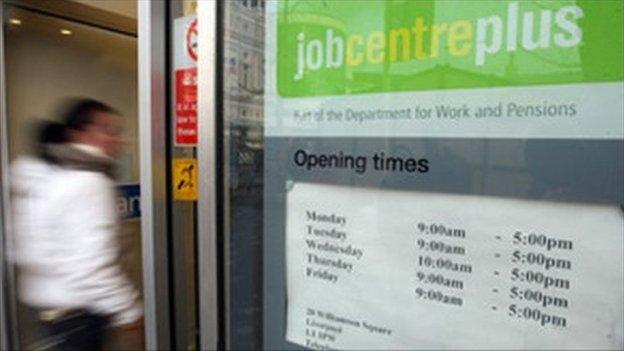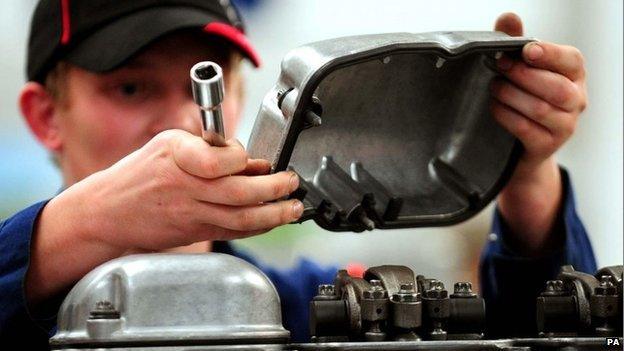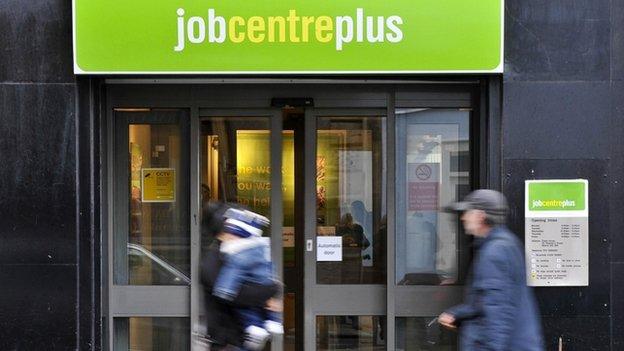Unemployment in Scotland down by 15,000
- Published

Unemployment in Scotland fell by 15,000 to 152,000 in the period between March and May, according to official figures.
The level was down by 39,000 compared to the same quarter last year.
The Scottish unemployment rate is now 5.5%, just below the rate of 5.6% for the whole of the UK.
The labour market statistics also showed employment in Scotland increased by 1,000 to 2,616,000 over the same three months.
This represented a rise of 40,000 compared to the same period in 2014, with the total number of people in employment now standing at 2,616,000.
The Scottish employment rate of 74.3% was above the UK average of 73.3%.


Analysis by Douglas Fraser, BBC Scotland business and economy editor
The Scottish job statistics show that most jobs growth is in full-time work. The number of people in part-time work is growing more slowly, and fewer of them are telling ONS surveyors that it is because they can't find full-time posts.
The numbers in temporary posts have been falling. It appears that women have been the ones leaving temporary posts and going full-time, while there's also a rise in women taking a second job (more than 60,000 of them in Scotland).
The number of men in temporary roles is on the rise too, but they're much slower to get a second job.
The overall picture emerging from this reflects the strengthened bargaining position of workers, while employers accept they have to sacrifice some of the flexibility of the temporary, contractorised job market if they're to get the people and skills they need.

The number of people claiming Jobseeker's Allowance (JSA) fell by 1,700 from May to 74,600 in June 2015. The level was down by 21,700 on June 2014.
The claimant count rate remained unchanged over the month at 2.7%, and down 0.8% over the year.
Unemployment rose by 15,000 across the UK as a whole - the first rise in two years.
Scottish Secretary David Mundell said the employment figures confirmed the decisions the UK government were taking were "creating a better, more prosperous future for the whole of the country".
He added: "Last week's Budget rewards work, backs aspiration, ensures fairness to taxpayers and gives businesses confidence to invest, to grow and to hire in the months and years ahead.
"The National Living Wage is an essential part of our move to a higher wage, lower tax, lower welfare society.
"Rising to over £9 an hour by 2020, this will outstrip the first minister's own ambition to have a national minimum wage of £8.70 an hour by 2020."
'Growing economy'
The Scottish government's minister for youth and women's employment, Annabelle Ewing, highlighted separate figures which showed Scotland's economy grew by 0.6% in the first three months of this year.
That was the same growth rate as the last three months of 2014, and slightly above the UK growth rate of 0.4% over the same period.
She said: "These figures show a growing economy and falling unemployment - both extremely encouraging indicators and signs that the economic picture in Scotland is continuing to improve.
"Indeed, Scotland was the only country of the UK where unemployment actually fell over the quarter.
"The 20,000 fall over the year in youth unemployment also means 20,000 more young people are now benefitting from the rewards and opportunities of work - something we are determined to improve on even further."
- Published15 July 2015
- Published17 June 2015
